Compared with various AI applications, we may need AI for OS more
The past May was a hot summer of AI. In the past, there was the 2023 Google I/O Developer Conference, which started building the AI universe, and later in the 2023 Microsoft Build conference, everything was related to AI.
AI has been applied to various products by Google and Microsoft, and its implementation speed has been soaring. However, at the application level, there are many domestic AI products that can be launched, and similar products will be launched soon, because the road is open, engineers are not a problem, technology is not a problem, it may be slower and the effect is slightly worse, but this It doesn't matter, recurrence is certain.
But Google and Microsoft are fighting fiercely in one area, but there are very few domestic manufacturers that can do it, and that is the operating system.
Currently, Microsoft has embedded the GPT-4 large model into the Windows PC operating system, launched Windows Copilot, and exported AI capabilities to the underlying operating system. In recent years, Google's Android system has always been criticized for "lack of highlights and copying domestic manufacturers", but the integration of many AI functions in the latest Android 14 shows that Google still has something up its sleeve.
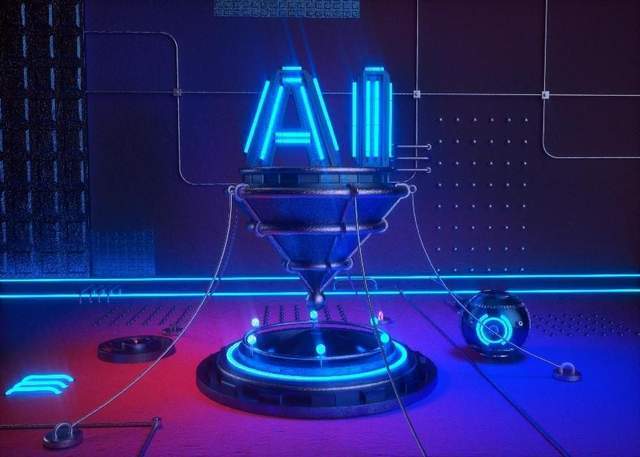
To build an operating system in the AI era, Google and Microsoft are rushing to get tickets.
The operating system is the release window for hardware performance and the carrier of a large number of software services. It can be said to be the starting point for all human-computer interaction. After the disruptive changes brought about by the large language model, the operating system also has the possibility of re-dividing the pattern.
In the AI era, will the operating system re-enact the duopoly of the mobile Internet, or will it usher in a hundred flowers blooming? The summer of 2023 has just begun, and you and I will all witness this industrial change.
Let’s start from the beginning of the story and see what AI can do for OS?
What are the ways to group CP between AI and OS?
The combination of AI and operating system OS is like forming a CP, there are many ways.
Ordinary users may be most familiar with AI in OS, which integrates AI software and applications on the original operating system. Microsoft has been working hard to add AI voice dialogue capabilities to Windows over the years. Mobile operating systems Apple, Android, and Harmony have been embracing AI capabilities for a long time. AI algorithms assist computational photography, face recognition, intelligent voice assistants, etc. Everyone should None of them are unfamiliar.
For developers, OS for AI is the “king way”, which is an operating system (AI OS) that provides machine learning and deep learning. For example, TensorFlow, PyTorch, Feipiao, Shengteng, etc., through comprehensive reconstruction of the operating system from hardware to software to network, can better support AI model training and application reasoning.
Technology manufacturers are very concerned about AI for OS if they want to build an operating system for the AI era. Simply put, it uses artificial intelligence to build and optimize operating systems and improve system design, development, and maintenance. It is not difficult to find that AI for OS directly affects the general public’s experience of using the operating system, and is the pair of CPs that we ordinary people are most looking forward to.
The improvement of the advancement and competitiveness of AI for OS will also directly affect the "nationality" of the operating system in the AI era and become the key to the success of the operating system.
AI for OS, what’s so sweet about this pair of CPs?
It’s not sweet to be forced. Whether AI for OS can be sweet to the hearts of users is the question that needs to be answered next. So is now really a good time to use AI to optimize the OS?
Let’s take a look at today’s operating systems and what can be changed by AI.
The first one is of course "getting heavier".
As the scenarios for users to use digital applications continue to enrich, the interaction and task loads that the operating system must bear also continue to grow rapidly. If you think about it, there are more and more applications installed on smartphones, and there are more and more external smart devices to be controlled. Paradoxically, as Moore's Law slows down, the computing power of processors increases. Coming closer to the bottleneck. This mismatch between computing resources and tasks is becoming an unbearable burden for the operating system.
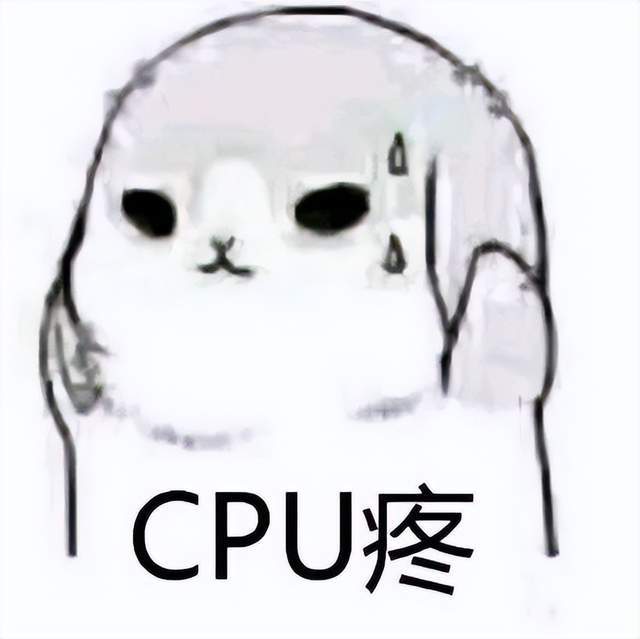
To make the operating system lighter, it is necessary to fully utilize the performance of the hardware and tap out more computing power. The system environment is highly dynamic and changes with the task load. Traditional operating systems require users to manually switch and close tasks. At this time, AI is used to automatically perceive changes in business scenarios in real time, estimate the current (or future) workload and required resources, make dynamic adjustments, optimize resource quotas, and achieve more accurate computing power supply. The user experience is of course also More silky and smooth.
For example, if it senses that the user is playing a game, it will automatically reduce background applications and release CPU resources to ensure that the game runs without missing out on five kills due to lagging.
The second one is "becoming stupid".
What is certain is that AI is the new track with the most potential and will be connected to a large number of software and hardware in the future. You can imagine that if you let a large AI model help you analyze ten papers, it will take half an hour from starting the application to generating results, and you will be disconnected from time to time and restarted. Who can bear this? Might as well get started yourself.

Traditional operating systems do not want to be abandoned by users because they become "dumb". They must start to support all-round applications of AI, which naturally requires further improving the capabilities of the operating system. For example, Microsoft Windows 11 allows AI to be deeply embedded in the underlying PC system, and can directly call AI large model capabilities to complete tasks without any APP as an intermediary.
To support AI to run better on various smart devices, we must work at the operating system level and completely reconstruct from hardware to software to network.
The third one is "getting complicated".
Nowadays, everyone is surrounded by a variety of terminals, and we are irreversibly entering the era of Internet of Everything, and the complexity of the system is also increasing.
For users, operating systems work independently, and the fragmented experience is very uncomfortable. Take me for example, smart home appliances are Android, mobile phones are IOS, and computers are Windows. Many applications cannot be switched freely between different devices. Each system has a separate account, and some personal behavior data is difficult to circulate among different terminals. The result is the application of "don't understand me" and "artificial retardation".
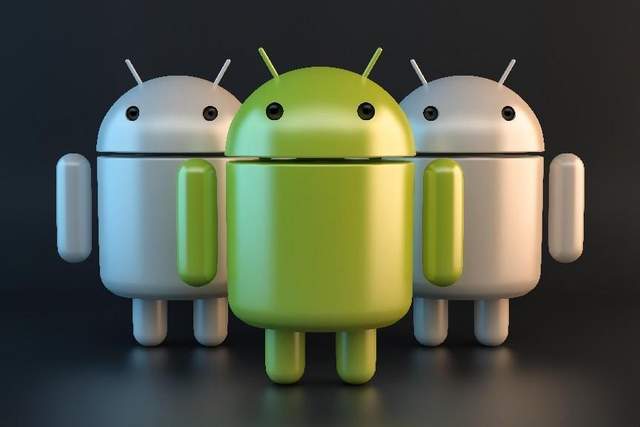
It’s just that the device is not smart enough. What is even more worrying is security. It is unknown which device will become the “shortest link” and be hacked, and other networked devices will suffer together.
For developers, application development for the Internet of Everything means a huge amount of code and workload, which is not an easy task.
It is not difficult to come up with an idea. After it is developed, the application must be deployed on a large number of IoT devices. Local computing power, network connection capabilities, cross-platform compatibility must be considered... If you find a certain There was a problem with the UI interaction of the device. After another round of debugging, the launch cycle was extended again, and the development cost was a bit too high. If the creativity and productivity of thousands of developers cannot be unleashed, the smart world will naturally arrive even more slowly.
Making complex scenarios simple and normalizing multiple terminals has become a consensus in the mobile industry. Some brands have proposed "all-scenario intelligence". However, without compatibility and collaboration at the operating system level, highly integrated scenarios will be difficult to implement. Targeted simplification supports one-time development and multi-deployment of applications across devices, systems, and platforms; without AI full-process assistance to improve the operation and maintenance, performance, and security capabilities of the operating system, it will be difficult to truly achieve “full-scenario intelligence.” realized.
Looking at it this way, the sweetness of AI for OS is that they have one heart and one body, and their strength is as strong as gold. The operating system serves as the hub, coordinating the relationship between software and hardware; AI serves as the brain, solving many existing challenges and making system capabilities simple and powerful.
The road has been paved at the system level, and the barriers and bottlenecks between chips, terminals, platforms, and scenarios have been eliminated.
Three major schools, each is sweet
As Turing Award winner Edsger Dijkstra said, Simplicity is a great virtue but it requires hard work to achieve it. Simplicity is a great virtue, but it takes work to achieve.
AI for OS brings simple but powerful capabilities, which is more suitable for the "physique of intelligent connection of all things". The question is, how to achieve it?
Currently, technology companies that have the strength to build the next generation operating system are exploring AI for OS. Specifically divided into three schools:
Genre 1: Counterattack on PC.
In this wave of large models, OpenAI is the absolute top traffic star, grabbing the most topics and attention, and Microsoft Windows, which owns this top-notch model, has also become the winner of "overnight popularity".
Microsoft has fully launched the "AI Copilot" on the Windows system, bringing a subversive experience to the interface and interaction of the Windows system and attracting a lot of users and developer fans.
For users, Copilot AI Assistant runs through the entire operating system. Users can directly call AI model capabilities through the Windows PC system and seamlessly connect applications, greatly simplifying the interaction steps.

For developers, Microsoft's AI-assisted programming solution built based on the OpenAI model and built GitHub Copilot X on GitHub, the world's largest code hosting platform, can automatically detect code problems and give suggestions to improve developers' work efficiency.
However, PCs have natural disadvantages compared to mobile terminals such as smartphones and tablets. Microsoft’s long-term absence in the field of mobile operating systems cannot be quickly filled by AI. If you want to draw users into the next era of operational interaction, you need to further provide more disruptive system capabilities.
School 2: Stable performance on the mobile terminal.
In the era of mobile Internet, Google Android and Apple IOS have divided the world to create the next generation operating system, and many features of the two have been retained.
Android's shallow. At this year's I/O conference, Google showed off its next-generation mobile operating system, Android 14. Generally speaking, AI's empowerment of Android 14 remains at the shallower application layer, focusing on the AI upgrade of the full range of tools. , there is very little introduction to Android 14 system-level improvements. For a long time, the openness and complexity of Android's native system have been criticized. The entire APP runs in the background, causing lags and instability. It mainly relies on downstream terminal manufacturers to "magically modify" the underlying code. Therefore, AI for Android Progress will probably have to wait for domestic manufacturers to "roll up."
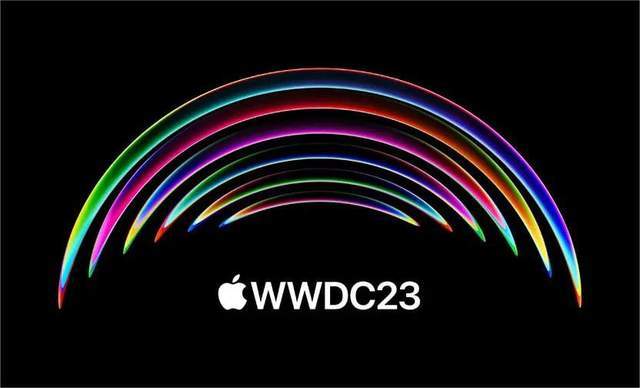
IOS deep. Although Apple's WWDC, which just concluded, also updated some AI features, the new upgrades in iOS 17 are all small features. Although Apple calmly avoided "taking advantage of the popularity of AI" at the press conference, the degree of integration of AI for iOS is actually very deep and practical.
This aspect stems from the inherent closed nature of the iOS system ecosystem. Mac, iPhone, ihome, smart wearables, etc. are tied to the Apple ecosystem, data can flow seamlessly, and the system also has high integrity and comfort;
On the other hand is the advantage of AI software and hardware collaboration. The self-developed AI chip is the biggest highlight of Apple's products, and has greatly improved AI computing performance. The newly released M2 Ultra chip at WWDC this time, Apple said, can smoothly support the calculation of large models, and has more obvious advantages than other chips. .
As the saying goes, "one force can reduce ten skills", powerful chips bring sufficient computing power, and then combined with a large number of machine learning algorithms in the IOS system, the effect is naturally significant. For example, AI helps IOS monitor user usage habits to optimize the battery life and charging frequency of the device; through AI acceleration, mobile terminals such as iPad can perform difficult tasks such as AR rendering; it supports the use of local machine learning on the device side to protect user privacy.
The problem is that IOS brings convenience to users, but it also firmly binds users to this ecosystem. Nowadays, operating systems at home and abroad are blooming, including server operating systems, Internet of Things operating systems, etc. The ecosystem of ubiquitous operating systems is gradually taking shape. More and more interactions need to be carried out across terminals and systems. This is almost unsolvable for IOS. of. Problems such as inconvenient interactions and data barriers brought about by ecological bundling have made Apple users feel less and less free, and have become a problem that Apple cannot escape.
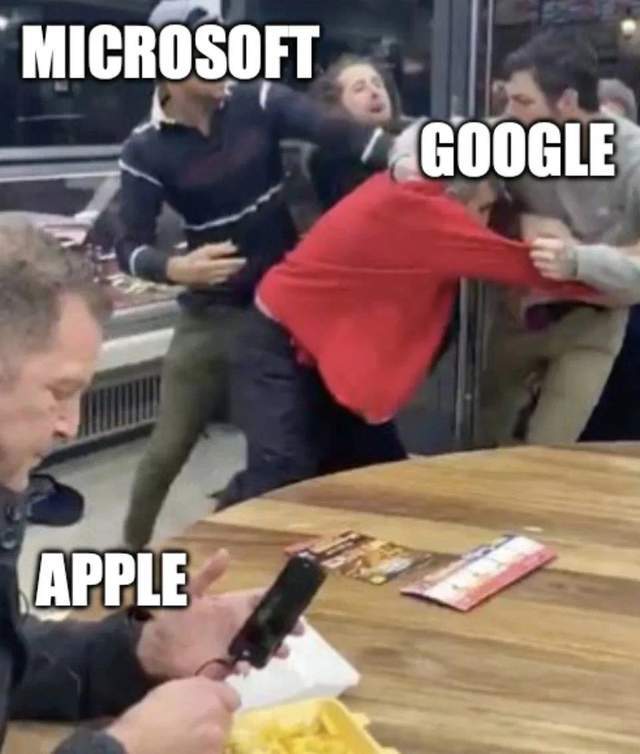
Genre 3: A new approach to the whole scene.
Currently, Microsoft, Google, and Apple all start from their own base camps and combine AI with their own operating systems that have existing advantages. As a representative of all-scenario operating systems, HarmonyOS’s approach to thinking about AI for OS is different from these established operating systems.
Hongmeng OS has emphasized the management and interaction of its respective hardware clusters from the beginning. From the operating system level, through distributed soft bus technology, it can achieve unified distributed communication between near-field devices, efficiently distribute tasks and transmit data. Applications can be transferred across devices.
Then, AI technology is introduced to optimize the operating system as a whole. The change that users can perceive is that AI realizes the accurate supply of resources and improves system smoothness; developers can use environment configuration, tool chain configuration, template selection, third-party library recommendation, etc. to carry out multi-device adaptive development and reduce workload.
What’s worth looking forward to is that Hongmeng OS starts from scratch and has no existing advantages to “rest on its laurels”, so it can draw an updated picture on a blank piece of paper and find new ways to address the unresolved pain points of the existing operating system. The underlying system-level reconstruction and technological innovation are refreshing.
What remains to be seen is that the current proportion of Hongmeng OS in rich-screen terminal devices is still far behind Android and IOS, and some technical solutions require further research. For example, cross-platform and cross-system data security and privacy protection, minimalist and intelligent tool chains for multi-device adaptive development, etc.
For an operating system to reach the public and the world, the most important thing is the advancement of the technology itself. AI for OS may allow Hongmeng to gain more say.
Seeing this, you may come to a conclusion: AI for OS looks really good, but the existing genres on the market seem to be barely interesting.
Indeed, in today's fierce competition in the smart terminal industry, giants like Google, Apple, and Microsoft cannot dig out all the passwords of the operating system overnight. The past May was just a warm-up.
There is an industry joke that people who study algorithms will be unemployed if they come up with algorithms. But people who study systems don’t have to worry, because every 10 years the hardware and tasks will change, and the system will have to be reworked. Write.
AI large model algorithms are making rapid progress, and the changes in operating systems are also worth looking forward to.
The above is the detailed content of Compared with various AI applications, we may need AI for OS more. For more information, please follow other related articles on the PHP Chinese website!

Hot AI Tools

Undresser.AI Undress
AI-powered app for creating realistic nude photos

AI Clothes Remover
Online AI tool for removing clothes from photos.

Undress AI Tool
Undress images for free

Clothoff.io
AI clothes remover

AI Hentai Generator
Generate AI Hentai for free.

Hot Article

Hot Tools

Notepad++7.3.1
Easy-to-use and free code editor

SublimeText3 Chinese version
Chinese version, very easy to use

Zend Studio 13.0.1
Powerful PHP integrated development environment

Dreamweaver CS6
Visual web development tools

SublimeText3 Mac version
God-level code editing software (SublimeText3)

Hot Topics
 1378
1378
 52
52
 I Tried Vibe Coding with Cursor AI and It's Amazing!
Mar 20, 2025 pm 03:34 PM
I Tried Vibe Coding with Cursor AI and It's Amazing!
Mar 20, 2025 pm 03:34 PM
Vibe coding is reshaping the world of software development by letting us create applications using natural language instead of endless lines of code. Inspired by visionaries like Andrej Karpathy, this innovative approach lets dev
 Top 5 GenAI Launches of February 2025: GPT-4.5, Grok-3 & More!
Mar 22, 2025 am 10:58 AM
Top 5 GenAI Launches of February 2025: GPT-4.5, Grok-3 & More!
Mar 22, 2025 am 10:58 AM
February 2025 has been yet another game-changing month for generative AI, bringing us some of the most anticipated model upgrades and groundbreaking new features. From xAI’s Grok 3 and Anthropic’s Claude 3.7 Sonnet, to OpenAI’s G
 How to Use YOLO v12 for Object Detection?
Mar 22, 2025 am 11:07 AM
How to Use YOLO v12 for Object Detection?
Mar 22, 2025 am 11:07 AM
YOLO (You Only Look Once) has been a leading real-time object detection framework, with each iteration improving upon the previous versions. The latest version YOLO v12 introduces advancements that significantly enhance accuracy
 Is ChatGPT 4 O available?
Mar 28, 2025 pm 05:29 PM
Is ChatGPT 4 O available?
Mar 28, 2025 pm 05:29 PM
ChatGPT 4 is currently available and widely used, demonstrating significant improvements in understanding context and generating coherent responses compared to its predecessors like ChatGPT 3.5. Future developments may include more personalized interactions and real-time data processing capabilities, further enhancing its potential for various applications.
 Best AI Art Generators (Free & Paid) for Creative Projects
Apr 02, 2025 pm 06:10 PM
Best AI Art Generators (Free & Paid) for Creative Projects
Apr 02, 2025 pm 06:10 PM
The article reviews top AI art generators, discussing their features, suitability for creative projects, and value. It highlights Midjourney as the best value for professionals and recommends DALL-E 2 for high-quality, customizable art.
 o1 vs GPT-4o: Is OpenAI's New Model Better Than GPT-4o?
Mar 16, 2025 am 11:47 AM
o1 vs GPT-4o: Is OpenAI's New Model Better Than GPT-4o?
Mar 16, 2025 am 11:47 AM
OpenAI's o1: A 12-Day Gift Spree Begins with Their Most Powerful Model Yet December's arrival brings a global slowdown, snowflakes in some parts of the world, but OpenAI is just getting started. Sam Altman and his team are launching a 12-day gift ex
 Google's GenCast: Weather Forecasting With GenCast Mini Demo
Mar 16, 2025 pm 01:46 PM
Google's GenCast: Weather Forecasting With GenCast Mini Demo
Mar 16, 2025 pm 01:46 PM
Google DeepMind's GenCast: A Revolutionary AI for Weather Forecasting Weather forecasting has undergone a dramatic transformation, moving from rudimentary observations to sophisticated AI-powered predictions. Google DeepMind's GenCast, a groundbreak
 Which AI is better than ChatGPT?
Mar 18, 2025 pm 06:05 PM
Which AI is better than ChatGPT?
Mar 18, 2025 pm 06:05 PM
The article discusses AI models surpassing ChatGPT, like LaMDA, LLaMA, and Grok, highlighting their advantages in accuracy, understanding, and industry impact.(159 characters)




